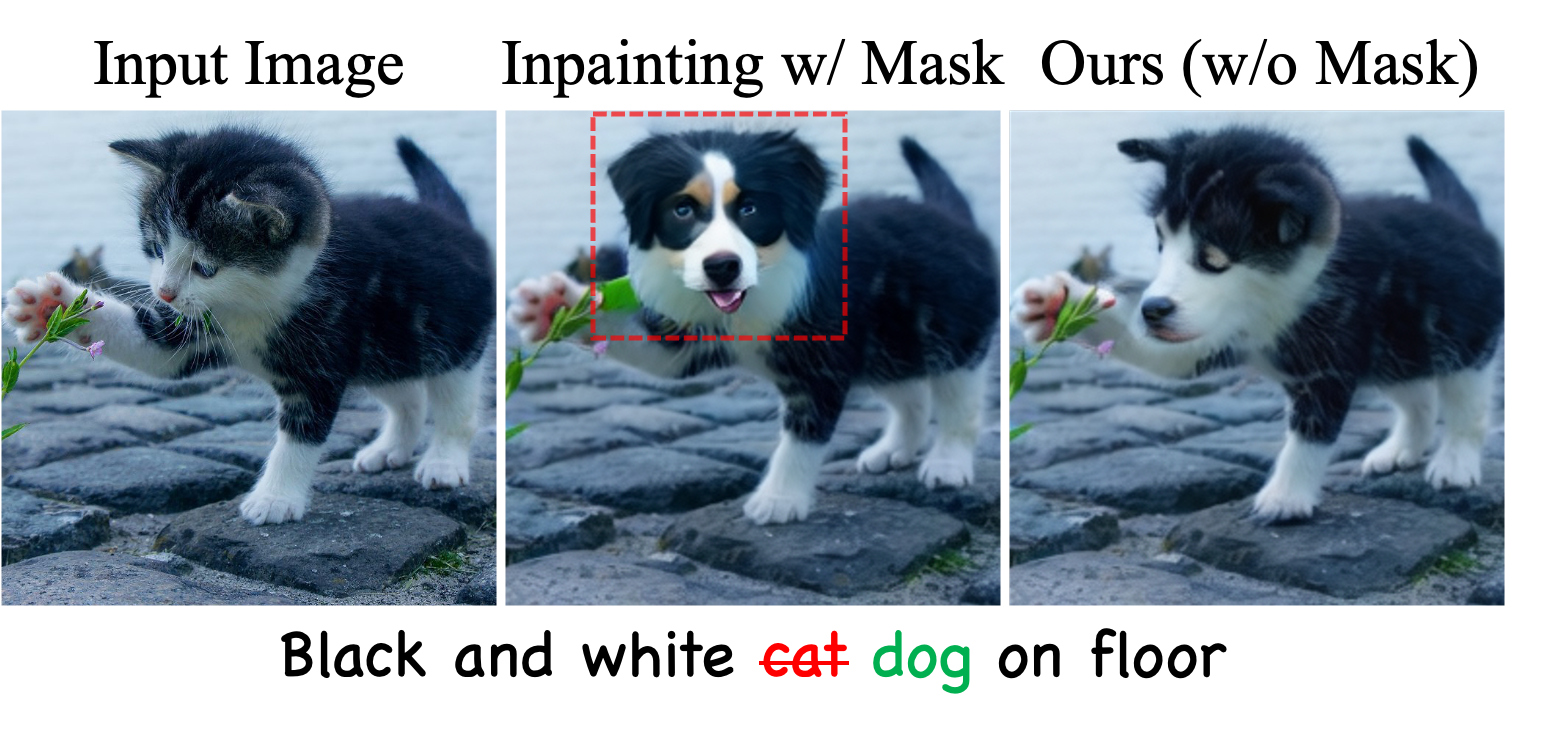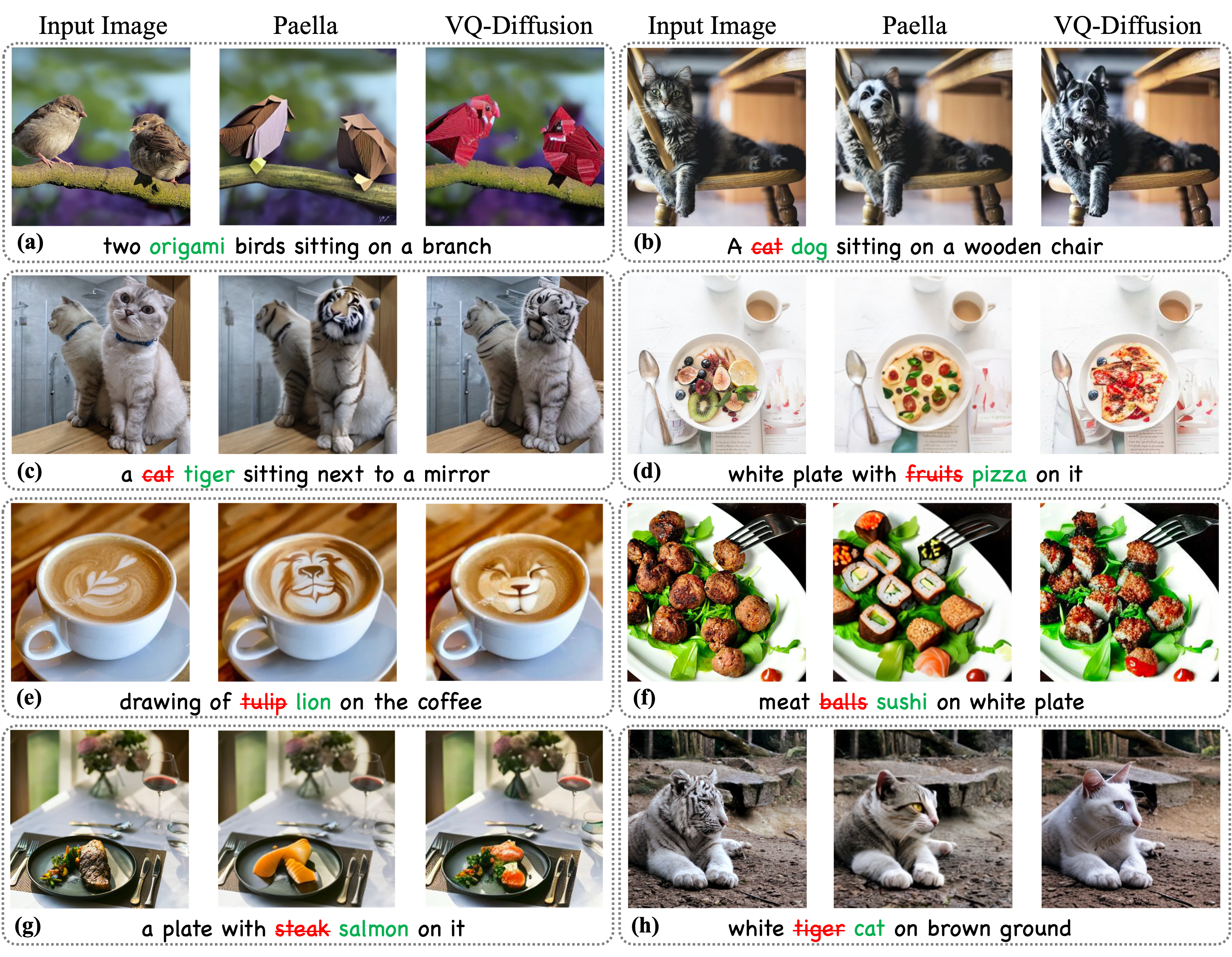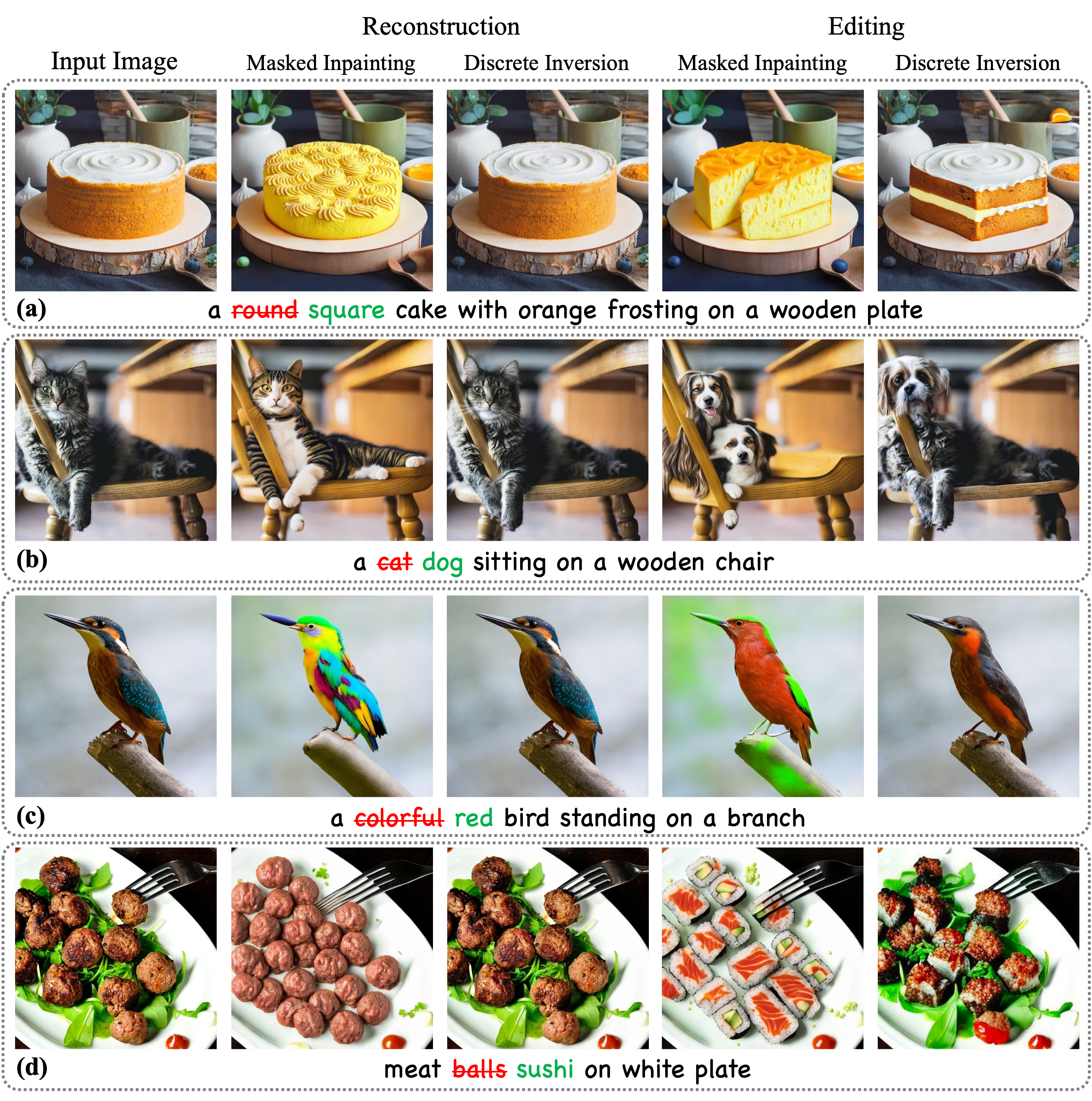Illustration of the limitation of masked inpainting method
Here, we want to change the cat to a dog. Inpainting with masked generation inadvertently modifies the orientation of the head, resulting in a less favourable result. With our discrete inversion, we are able to edit the image while preserving other properties of the object being edited. This is achieved by injecting the information from the input image into the logit space. Dotted red box indicates the mask.





